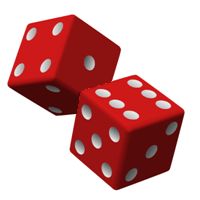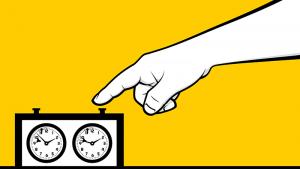
Riskless Chess
"The biggest risk is not taking one."
Many of the greatest chess players in history are compulsive risk-takers. From Paul Morphy to Mikhail Tal to Bobby Fischer to Alexei Shirov, tournament success (especially at a high level) frequently hinges on a player's ability to refrain from "playing it safe." It is never pleasant to watch your position go down in flames after miscalculating a complex sacrifice or executing an overambitious plan, but as a Russian saying goes: "he who does not take risks does not drink champagne."
But the key word in the paragraph above is "frequently." As I've emphasized in previous articles, dogmatism and modern chess are irreconcilable enemies, and he who does not acknowledge exceptions to rules will not drink any champagne either! Take GM and former World Champion Vladimir Kramnik as an example. He's had his share of dazzling attacks and eye-catching combinations, but he's also had an improbable number of games in which he steamrolls his opponent (often a 2700+ Grandmaster in his own right) without shedding so much as a drop of blood. As an example, take a quick look at the following masterpiece:
One could argue that Grischuk was not at the top of his game, but even if he played at a 2650 level, Kramnik's victory is remarkable. Every move he made in the middlegame was entirely natural, and Grischuk could not move a muscle for most of the game. In other words, Kramnik scored a crushing win without deep calculation or any necessity for risk-taking.

Once again, such bloodless victories are rare, but if you outplay your opponent in the opening or find yourself with a significant positional advantage (which can come in the form of a space advantage, superior piece placement/coordination, or better pawn structure), do not feel obligated to win through tactical means. Tigran Petrosian, the ultimate master of riskless victories, shows us how to do just that with a magnificent performance against the strong Dutch GM Hans Ree:
Black made no conspicuous errors - either positional or tactical - yet the game was ridiculously one-sided. We are often afraid to play simple chess and seek to complicate the game when straightforward, textbook play is called for. Of course, riskless chess requires an immense amount of patience and positional finesse, but it is not synonymous with wimpy chess! To be sure/, this type of "retirement chess," as Russian GM Evgeny Bareev once put it, has its risks (no pun intended).

You cannot hope to win every game against a weaker player by depriving him of counterplay from move one and slowly pushing him off the board, but you do not necessarily have to burn all the bridges to score a victory against a resilient opponent. I've had very few games of this kind in my own chess career, but here is one of them:
Once again, notice that essentially every move I made was relatively straightforward and unextraordinary. After only a few moves of such play, my opponent found the pressure unbearable and made my job easier.
As you can see, such unhurried, counterplay-quashing play is excruciating for your opponent. Everyone (except for Magnus Carlsen, perhaps, but then again, he's inhuman) has a playing style - certain positions that they strive for, certain areas of the game in which they excel. However, it is the mark of truly strong players to hunker down, as it were, and sense the moments when particularly brilliant or memorable play is unnecessary.
So if you find yourself with a slight advantage, consider your options carefully. Make no mistake - as Steinitz remarked, you must often embrace tactical complications in order to convert your initiative - but simple, patient, and consecutive positional pressure (mundane and straightforward as it may be) is an entirely full-fledged way to reel in the full point as well.
RELATED STUDY MATERIAL
- Read IM Silman's article The Power of Positional Chess, Pt. 1 - Maneuvering;
- Watch GM Melikset Khachiyan's analysis of the master of riskless chess in Learning from the Best: Tigran Petrosian Part 1;
- Get more insight on positional victories in Chess Mentor;
- Become a tactical machine with our Tactics Trainer;
- See a preview of our magazine: The Master's Bulletin.






